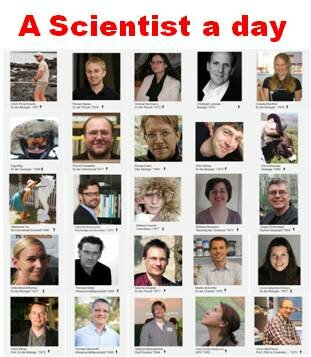Researcher, educator and practitioner in science communication (EN)
uli Brandt-Bohne | Aug 03, 2012 | Kommentare 0

is a researcher, educator and practitioner in science communication. He is also a visiting lecturer, National Correspondent on the EU-funded project MASIS, member of several projects, committees and very active in science communication and teaching.
How he got into Science
Brian Trench took a degree in languages, worked for 20 years as a journalist and became a university lecturer in journalism 20 years ago. `As a journalist and as a lecturer I came to specialize in science and technology matters´, says Trench and adds, `my main focus now is on the development of the science of science communication´.
Are you where you first planned to be?
According to Brian, he was fortunate to have had opportunities to try different things.
`I would be worried if a lifetime’s trajectory was set out in advance. I am
happy to be where I am´, he states.
Which is your biggest scientific achievement?
`I have tried to contribute to a better definition of the concepts we
work with in science communication´, he explains. He therefore developed an analytical framework of models of science communication which you can read about here
<http://doras.dcu.ie/3629/>
What is, in your opinion, THE biggest scientific achievement/novelty?
Brian has always found it hard to say what his favorite music, book or food was- and he has strong interests in all of these areas. But he would consider the work of the last half-century on treatments for the world’s major diseases to be both the biggest achievements of science and the biggest
questions still to be answered.
Who is -to you- the greatest Scientist?
In his own field Brian refers to various social theorists, philosophers and social researchers, `but no one person stands out for me´, he adds and goes on, `similarly, when I think of the natural sciences, I think of the achievements in particular domains rather than of outstanding individuals´. He considers science as linked communities of individuals but he does not think that a star system serves science
well.
Which scientific question would you like to be answered?
`I would hope to see preventive and remedial treatments and associated healthcare systems in place to tackle effectively global diseases like malaria and HIV´, Brian says. According to him, this question, like all the most important and interesting ones, has to be answered through co-operation of scientists of many different types and backgrounds.
Discovering and naming findings
`I would like to see a formula devised for the immediate detection of bullshit, the kind of talk that we hear so much in political and other public discourses, where the speaker is filling space and claiming attention but not concerned about or maybe not even aware of the truth of what s/he is saying. `I would be happy to have it named simply as BD (bullshit detector)´, says Brian.
What should be different in Science?
Brian Trench states that `Science is slowly learning to be more open and accessible but the institutions, practices and cultures of science need to change more rapidly in this direction´. According to him, scientists need to acknowledge in public the messiness, uncertainties and limits of science.
How does the Science of the future look like?
To Trench, science may evolve in two contradictory directions, a dominant thrust towards increasingly corporatized science constrained by concerns about protection and exploitation of intellectual property, and a weaker thrust towards more open, socially responsive and social-needs-driven science.
What is the biggest deficit in Science?
`Science’s greatest deficit may be its blindness to its deficits´, Brian explains. `The
ideology of scientism, that is, a faith that science, as practiced in the natural sciences, can answer all questions, affects very many scientists. The bigger the science, the more it needs insights from humanities and social sciences, to make sense of it´, he adds.
You can also participate in A Scientist a day, find more information in english here.
Du kannst auch bei A Scientist a day teilnehmen, mehr Information dazu gibt es hier.
Popularity: 3% [?]
Eingehende Suchbegriffe:
Ähnliche Artikel:
Kategorie: A Scientist a day • Featured
 Kommentare (0)
Kommentare (0)
Trackback URL

